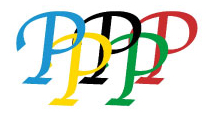Speaker
Description
Compelling evidence from cosmological observations indicates gravitational interactions of a new particle - “Dark Matter”. One of the most important goals of the “Cosmic Frontier” is to make more precise measurements that will lead to a deeper understanding of this “beyond the standard model” phenomena. This understanding can be made deeper through complementary studies based at colliders. The FCC could provide an opportunity to make precision studies of dark matter for several compelling dark matter candidates - among these dark matter models that interact with ordinary matter via a Higgs portal, and dark matter related to neutrino mass models. The FCC program can probe a large spectrum of DM scenarios: from the traditional WIMP paradigm to more feebly interacting scenarios, including axions. Amongst the wide variety of dark matter candidates - and dark sectors more generally - that can only be explored at FCC-ee and FCC-hh, Weakly Interacting Massive Particles (WIMPs) remain a highly motivated scenario. Thermal relic WIMPs in the doublet and triplet SU(2) representations have an upper bound on their mass around 1 and 3 TeV respectively. FCC-hh can cover this entire range to either exclude or discover these thermal WIMP scenarios that would otherwise be left unexplored by other means. The FCC program can also constrain other parameters of cosmological interest, such as the effective number of neutrinos.

